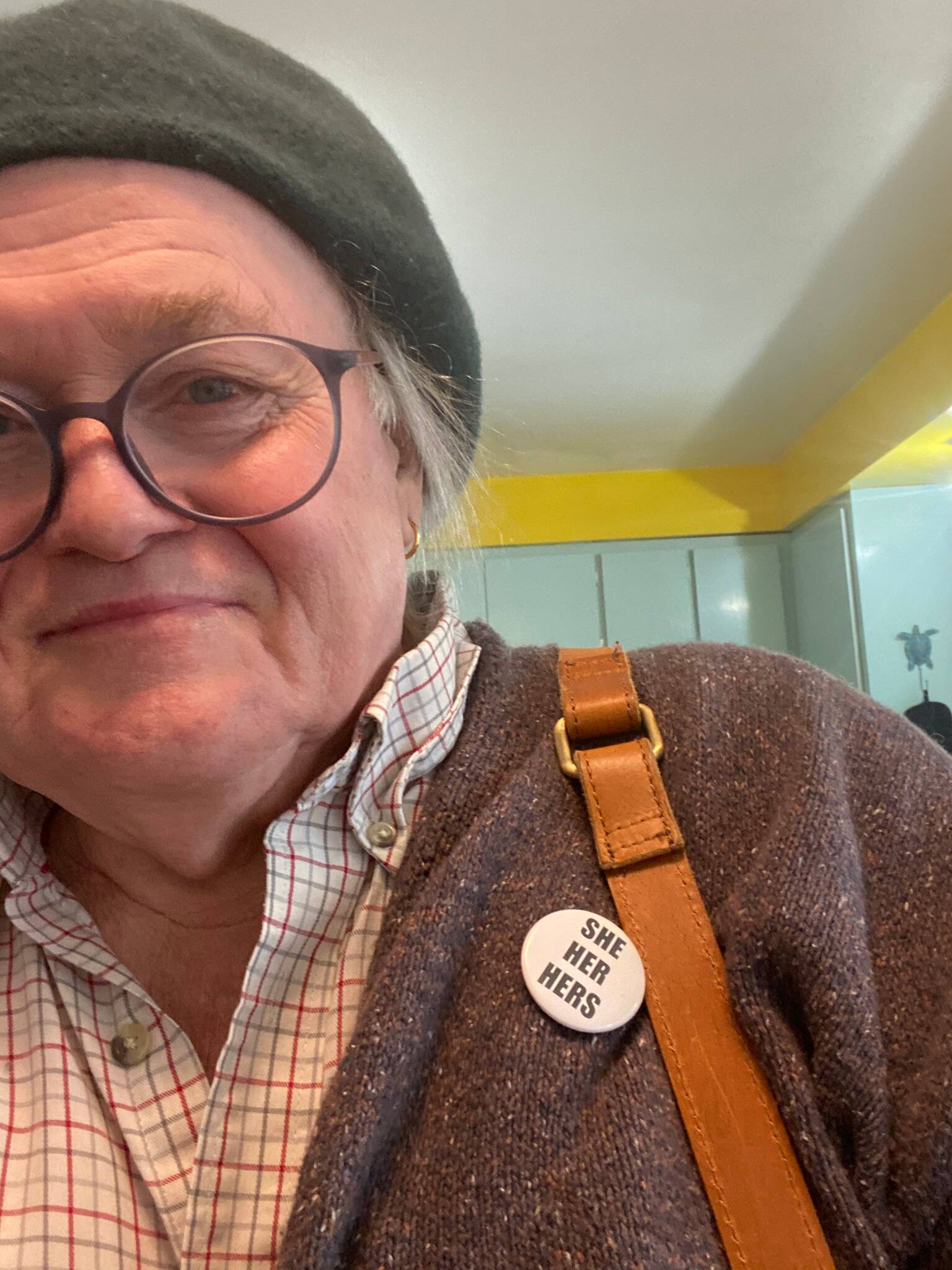For Michael Reid Hunter, l’homme sensuel
I wake up early, around 4, and lie in my hotel room listening. It’s my favorite Seattle hotel, a six-story brick building from the 1920s that still has its original elevator (the elevator door is a regular old door that you open manually with a regular old doorknob).
And the rooms have regular old windows that open. I sleep with the window wide open so I can wake up listening to the morning.
A gull cries as it flies past, and in the distance a siren wails. A few sparse clanks and thumps scatter darkly through the early morning. An air conditioner hums from the building across the narrow side street. Then more gulls, more clanks and clunks and swooshes. Voices go by on the street below. A jet passes overhead. Somewhere in the building someone flushes.
Gradually, the rumble and thrum of rush-hour traffic begin, and all these sounds mount and swell, whole broken scales of tones hydraulic, pneumatic, and mechanical, with human voices on the street, avian voices on the wing—a cityscape of noise, a place to happen, a place to be.
In college, I trained myself to listen. Without closing my eyes, I would pay greater attention to the sounds around me than to the sights. Instead of looking around, I would listen around — to the voices and laughter in the college cafeteria or to the whispers and shuffles in the library or to the bustling out on the quads.
It felt a little voyeuristic sometimes, overhearing snippets of conversations. Our voices seem to me so much more intimate and expressive than our facial expressions. Verbal idioms and vocal inflections often betray the emotions hiding behind poker faces.
(Listening around. It’s like sleeping around, only less fun and with fewer moral judgments–except I judge myself harshly whenever I find that I haven’t been listening, say, to a friend’s casual words.)
But I love noise. At home, I love waking up to the sounds of my partner in the kitchen and the coffee brewing and the dogs scurrying about. It’s the sound of our lives.
Thirty years ago, sitting in UW’s Suzzallo Library researching Native American songs, I discovered a healing song of the Red Lake Ojibwe tribe in Minnesota that I fell in love with and appropriated as a kind of personal mantra or motto.
Whenever I pause, whenever I pause,
The noise of the village whenever I pause.
Whenever I pause, whenever I pause,
The noise of the village whenever I pause.
(I published an essay centered around this song six years ago in these very pages, archived online at https://www.juneauempire.com/life/on-writing-the-scattering-afield-a-personal-essay/)
I see the Ojibwe songwriter in my mind’s eye. She pauses from the work at hand, and as she relaxes, all the sounds of the village around her flood back into her consciousness–like jewels spilling out onto a jeweler’s workbench. All those sounds now inside her, in her ears and in her head, are part of who she is. Then she creates her song, which makes the return journey out into the community, where it becomes another one of the village’s noises.
The village and its noise are who we are. In making this very personal story of mine public, it becomes part of the story of this community. My story becomes your story, too, like it or not. Our story. The noise of the village.
In these columns, often I talk not about gender but about other things, things we all know and experience—memories of a loving grandparent or caring for people we love or growing old or some old song or poem that seems, as Dylan says, like it was written in your soul. You know: normal stuff, stuff you recognize, mortal stuff. (I wish I knew how many readers recognize the Seattle hotel in my opening paragraph.)
My wrestling with gender may be relatively uncommon, but it’s not at all abnormal. This is just one person’s idiosyncratic response to fairly quotidian concerns, experiences we all go through, things we all think about.
This is the foundation of human rights: the recognition that each person’s story is our collective story. Your story, my story: these are collectively the story of the human race, the story of American life, the story of Juneau. And each individual’s story changes the collective narrative. How could it not?
That’s the big idea here. I rarely talk explicitly about politics, but writing this column is itself a political act. The Juneau Empire is an open window, and this is the noise of the village.
Listen:
• Jane Hale spent her first 69 years writing as Jim. She is a longtime Juneau resident. “Coming Out” is a biweekly column. It appears on the Empire’s Neighbors page.

